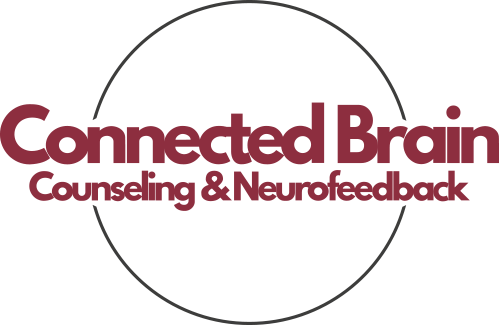Anxiety is known to cause a wide range of physical symptoms, including rapid heartbeat, sweating, and restlessness. However, many people experience less well-known symptoms like numbness in the face, which can be alarming and confusing. Understanding how anxiety leads to physical sensations such as facial numbness can help individuals better manage their anxiety and reduce the likelihood of such symptoms occurring.
How Anxiety Affects the Body
Anxiety triggers the body’s fight-or-flight response, which is a survival mechanism designed to prepare the body for potential threats. This response leads to the release of stress hormones like adrenaline and cortisol, which can cause physical reactions such as increased heart rate, muscle tension, and changes in circulation. When anxiety is persistent or severe, these physical changes can manifest in various ways, including numbness or tingling in different parts of the body, such as the face.
Why Does Anxiety Cause Numbness in the Face?
Facial numbness as a result of anxiety is usually linked to two primary factors:
- Hyperventilation: Anxiety often causes rapid, shallow breathing, or hyperventilation, which can lead to imbalances in oxygen and carbon dioxide levels in the body. This imbalance can cause tingling or numbness, particularly in extremities like the hands, feet, and face. Hyperventilation reduces the blood flow to these areas, which can result in the sensation of numbness.
- Muscle Tension: Anxiety can cause muscle tension, particularly in the jaw, neck, and facial muscles. Prolonged tension in these areas can lead to feelings of tightness, pain, or numbness.
While these physical symptoms are uncomfortable, it’s important to note that they are typically harmless and are directly related to the body’s stress response.
Other Symptoms of Anxiety-Related Numbness
In addition to numbness in the face, individuals with anxiety may also experience numbness or tingling in other areas, such as the hands, feet, and legs. Other common symptoms associated with anxiety-related numbness include:
- Dizziness or Lightheadedness
- Shortness of Breath
- Chest Tightness or Pain
- Trembling or Shaking
- Sweating or Chills
If you’re experiencing any of these symptoms alongside numbness, it’s likely that anxiety is the root cause.
 How to Manage Anxiety-Induced Numbness
How to Manage Anxiety-Induced Numbness
Managing anxiety-related numbness involves addressing the underlying anxiety that triggers these sensations. Some effective techniques include:
- Breathing Exercises: Since hyperventilation is a key cause of numbness, focusing on deep, controlled breathing can help restore the balance of oxygen and carbon dioxide in the body. Try slow, diaphragmatic breathing to calm your nervous system and reduce hyperventilation.
- Relaxation Techniques: Progressive muscle relaxation, meditation, and mindfulness exercises can help reduce muscle tension in the face and body. These techniques encourage relaxation and help mitigate the physical symptoms of anxiety.
- Grounding Exercises: Grounding exercises can help bring you back to the present moment and reduce the sensation of numbness. Focus on your surroundings, use your senses to observe the environment, and remind yourself that the numbness is a temporary response to anxiety.
- Cognitive-Behavioral Therapy (CBT): CBT is an effective therapy for managing anxiety. A therapist can help you identify anxious thought patterns that trigger physical symptoms and work with you to reframe these thoughts in a healthier way.
When to Seek Medical Attention
While anxiety is a common cause of facial numbness, it’s important to rule out any other medical conditions that may cause similar symptoms. Conditions like migraines, multiple sclerosis, and nerve damage can also result in facial numbness. If the numbness persists, worsens, or is accompanied by other concerning symptoms like facial drooping, vision changes, or difficulty speaking, it’s essential to consult a healthcare professional to ensure there isn’t a more serious underlying issue.
Facial numbness caused by anxiety is a distressing but generally harmless symptom. By understanding the connection between anxiety and physical sensations, individuals can take steps to manage their anxiety and reduce the likelihood of experiencing numbness. If you’re struggling with anxiety and its physical symptoms, Connected Brain Counseling is here to help. Our team of professionals can work with you to develop strategies for managing anxiety and improving your overall well-being. Contact us today to schedule a free consultation.
- Healthline – Anxiety and Numbness: What’s the Connection?
Healthline explains the link between anxiety and physical symptoms like numbness and provides strategies for managing these sensations. - Verywell Mind explores the ways anxiety can affect the body, including the sensation of numbness, and offers tips for managing these symptoms.
- Mayo Clinic – Anxiety Disorders: Physical Symptoms and Treatments
Mayo Clinic provides an overview of anxiety disorders and their physical symptoms, along with recommended treatments.
If you’re struggling with anxiety and its physical symptoms, Connected Brain Counseling is here to help. Our team of professionals can work with you to develop strategies for managing anxiety and improving your overall well-being. Contact us today to schedule a free consultation.





